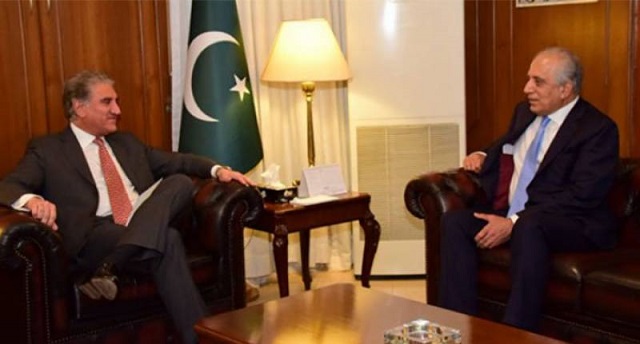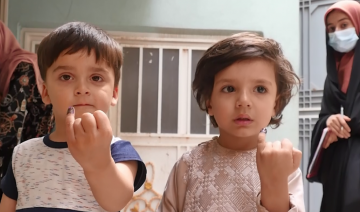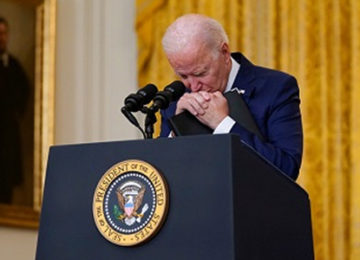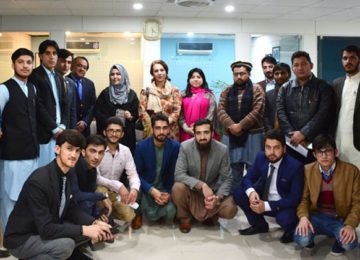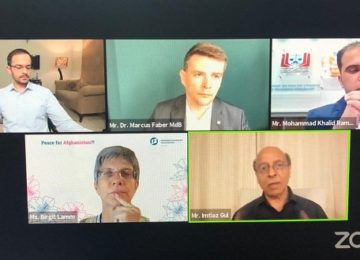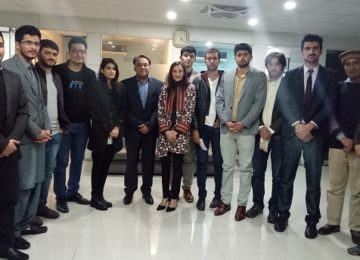July 2, 2020
As violence escalates in Afghanistan at the hands of the Taliban, fear grows that the intra-Afghan talks could be derailed before they even commence. Over a period of just seven days in mid-June, the Taliban carried out 422 attacks in 32 provinces, according to the Afghan government, leading to the death of 291 Afghan National Defense and Security Forces (ANDSF) personnel and 42 civilians. For their part, the Taliban rejected the accusations on the grounds that they were simply defending themselves from ANDSF attacks.
Former Afghanistan Chief Executive Dr. Abdullah Abdullah, now the chairman of the newly established High Council for National Reconciliation (HCNR) overseeing the talks with the Taliban, has expressed his concern over the sustainability of hoping that the Taliban would come to the negotiating table. For the success of the intra-Afghan talks, though, it is worthy to note here that a major obstacle to the process was removed in May when, after an extended dispute over the results of the 2019 presidential elections, Dr Abdullah signed a power-sharing deal with incumbent President Ashraf Ghani. The deal resulted in the creation of the HCNR which aims to establish an inclusive and diverse negotiating team, representing common values of the Afghan people from all walks of life, which will engage in talks with the Taliban. This is done so as not to compromise on the hard-won, democratic gains for the sake of a deal with the Taliban.
With intra-Afghan talks finally imminent in sight, at the same time, analysts fear that there will be vast disparities on the nature of governance to be adopted during the talks by negotiators on both sides. President Ashraf Ghani is of the firm stance that the Afghan government should retain the status of “the Islamic Republic of Afghanistan as a sovereign, democratic and united republic.”On the other hand, the Taliban wish for Afghanistan to become an Islamic emirate with the Afghan people paying their allegiance to an Islamic government.
Nevertheless, the Afghan government is now adamant that, after four long decades of war, it is obvious that the solution to the conflict is no longer in the use of the military and violence but through negotiations and talks. To this end, Dr. Abdullah is of the view that compromises may have to be made in the common interest of the broader public; not just by the Afghan government side, but also the Taliban side.
At the same time, concerns have also been raised that the Taliban may just be waiting for the United States to withdraw militarily before attempting to take control of the country by force. This is because the US-Taliban peace accord of February 29 pivoted on security assurances from the Taliban and the need to start intra-Afghan negotiation before the US can set out the withdrawal of its troops. Dr Abdullah, though, has allayed these fears on the grounds that the presence of Al-Qaida, ISIS and other terrorist groups will continue to be a factor due to which the US and its allies may not exit the country entirely until the threat of terrorism has significantly subsided.
Along with the internal developments in Afghanistan, in parallel, efforts to keep the momentum of the peace process on track are also underway by the international community. Earlier in May, the first trilateral meeting between Uzbekistan-US-Afghanistan was held in the form of video conferencing to discuss the process of a peaceful settlement within the country and international assistance to Afghanistan. While this week, US Special Representative for Afghanistan Zalmay Khalilzad, embarked on a three-nation visit to meet with officials in Uzbekistan, Pakistan and Qatar, to push for the peace process in Afghanistan. Uzbekistan is among the few countries which has offered to host the intra-Afghan negotiations.
In Pakistan, Khalilzad’s meeting with Foreign Minister Shah Mahmood on July 1; his second in a month, aimed at building economic cooperation between the two countries and, in particular, strengthening Pakistan’s role in the reconstruction of its war-ravaged neighbor. As per the US State Department’s statement, at the conclusion of his three day visit, Khalilzad is expected to meet the Taliban political representatives in Doha next where he would press for the start of the intra-Afghan negotiations, the timely release of all remaining prisoners and emphasize on the reduction of violence which has been on the rise despite the conditions set out in the US-Taliban agreement. With regards to meeting the Afghan leaders later, Khalilzad will hold video conferences rather than travel to Kabul because of the high number of infections in the coronavirus pandemic in the country.
Earlier this week on June 29, US Secretary of State Mike Pompeo also spoke to Taliban chief negotiator Mullah Abdul Ghani Baradar in a video call where he called on the Taliban to live up to their commitments, including refraining from attacking American troops. Pompeo’s warning came following a controversy over whether Russia had paid bounties to Taliban-linked militants or drug dealers to kill US and NATO soldiers in Afghanistan. While US President Donald Trump denied knowing about the suspected bounties, Russia has termed these charges to be nonsense while the Taliban have held the stance that they are not in need of any financial incentives from foreign intelligence agencies to wage a war against the US and NATO troops.
On the other hand, in a renewed effort to push the stalled intra-Afghan dialogue, Pakistan’s newly appointed Special Representative on Afghan Affairs Ambassador Mohammad Sadiq, has also been engaging in a series of detailed meetings with Mullah Abdul Ghani Baradar and other Taliban leaders in Doha which focus on the future of the reconciliation process. According to officials, the Taliban leadership conveyed its commitment to implement the US-Taliban accord of February 29 and hoped that it would pave the way for the withdrawal of foreign troops from Afghanistan.
At the moment, the process appears to be stalled due to disagreements over the prisoners’ release. Under the deal, the Afghan government was to free 5,000 Taliban prisonsers while the insurgents had to release 1,000 government personnel. So far, the government has freed 3,500 and the Taliban about 700. In mid-June, Khalilzad said that the talks were closer than ever, praising Kabul and the Taliban for freeing most of the prisoners.
Last week, President Ashraf Ghani also called on the Taliban to end the violence and come forward to start the intra-Afghan talks. It appears that with the increasing push for intra-Afghan talks by the international community and the power-sharing deal between Dr Abdullah and President Ghani, there is renewed hope that the insurgent group may be edging closer to kicking off the peace negotiations with Kabul. Certainly the four decades of the bloody war calls for an end through an inclusive peaceful political settlement to birth a democratic, united and stable Afghanistan which is in the interests of the war-weary Afghan people, as well as one that finally opens the doors for the long-stalled economic connectivity of the region.
Sitwat Waqar Bokhari is a Research Fellow at the Center for Research and Security Studies (CRSS) and Program Manager at Afghan Studies Center. She tweets at @SitwatWB.



